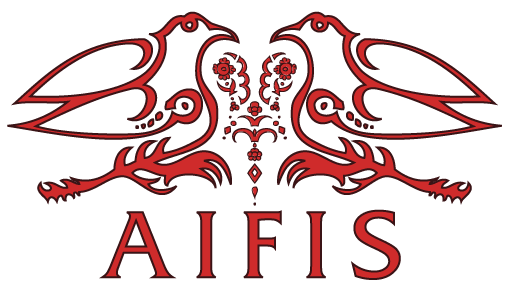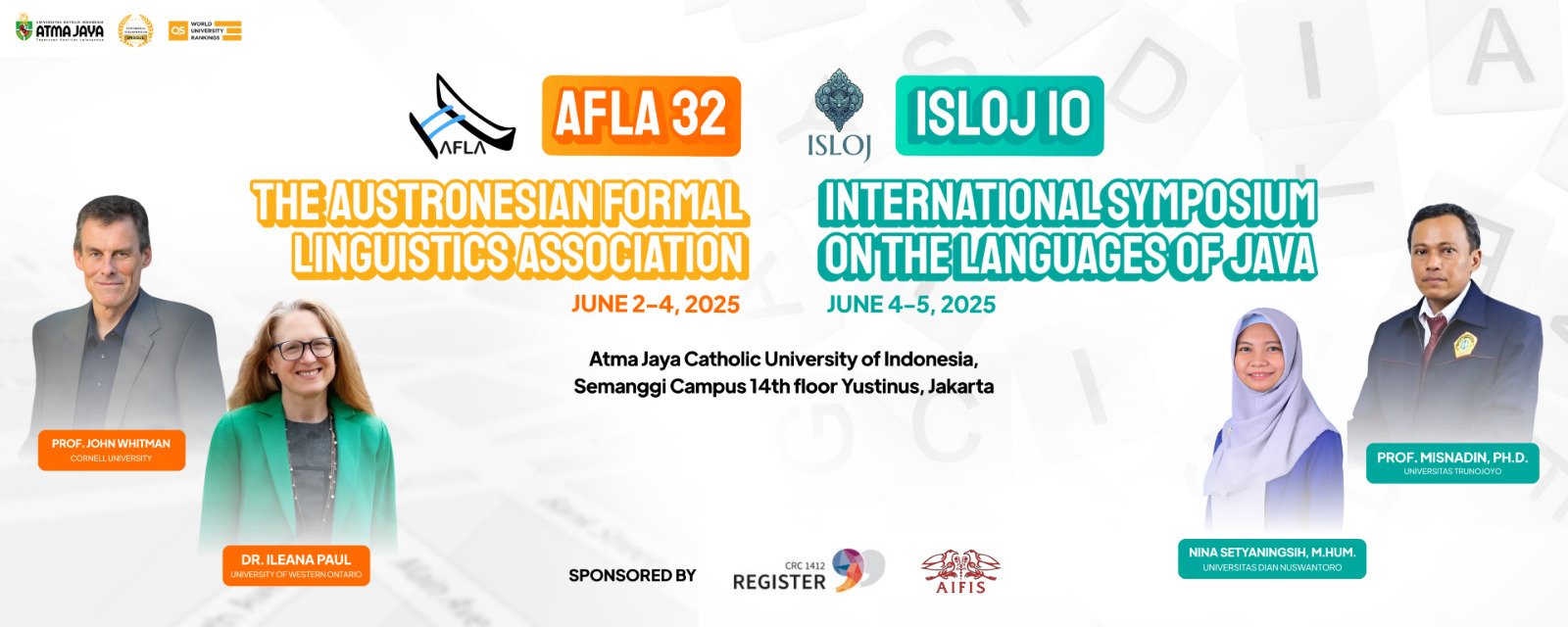The Austronesian Formal Linguistics Association (AFLA) promotes the study of Austronesian languages from a formal perspective. Since the initial meeting in 1994, AFLA has served as a forum for the presentation of new research in all of the core areas of formal linguistics, including (but not limited to) phonology, linguistic typology, morphology, semantics and syntax. AFLA has a history of bringing together leading scholars, native speaker linguists, and junior scholars in the formal study of Austronesian languages.
Since 1994, AFLA has served internationally as the most prominent and influential venue for presentation and discussion of recent research on Austronesian languages. Research disseminated at AFLA spans all subfields of linguistics (syntax, semantics, phonology, morphology, sociolinguistics, psycholinguistics, language acquisition, historical linguistics, etc).
AFLA32 will be hosted at Atma Jaya Catholic University of Indonesia in Jakarta, Indonesia, from June 2-4, 2025. ISLOJ 10 will be hosted immediately afterward, on June 4-5, 2025.
In addition to the main conference, AFLA 32 and ISLOJ 10 will jointly host an integrated special session on register, which broadly encompasses aspects of the register knowledge of the speakers of a language (such as which alternatives are available) and which situational parameters are relevant (properties of the surroundings, properties of the addressee, purpose of the interaction etc.).
This special session aims to better understand the role of register across languages that explains why certain grammatical variants differ by register, identifying cross-linguistically valid principles of register, and how might these be suitably modelled, taking Austronesian languages in particular, of which several are known to have grammaticalized speech registers or speech levels. For this special session, we especially invite papers along two research tracks. The first track is how overt vs. implicit marking of grammatical features are distributed across registers, and more generally, how the grammatical properties of a language interacts with possibilities of register variation. This could include, for instance, different types of marking via reduplication, forms of address and politeness, or tense-aspect-mood marking, among others. The second track concerns modeling register in multilingual contact situations, with regard to the emergence of contact-induced grammatical variants and register-related language-mixing.
This special session aims to foster initial research within and across Austronesian languages, to relate to current research on register across other languages and across several disciplines (see, for further information, the Collaborative Research Centre 1412 on ‘Register’) sfb1412.hu-berlin.de
More information about AFLA, including locations of past meetings, can be found here. If you have any questions or concerns, please contact the organizing committee at afla32@atmajaya.ac.id

